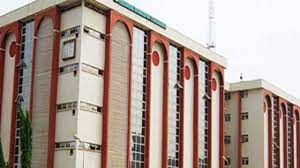Business
FG Begins 4th MSMEs Survey – NBS

The Federal Government is set to begin the fourth round of the Micro, Small and Medium Scale Enterprises (MSMEs) survey.
The disclosure was made yesterday in Abuja at a news conference jointly addressed by the office of the Statistician-General of the Federation and the Small and Medium Enterprises Development Agency of Nigeria (SMEDAN).
Director, Real Sector and Household Statistics Department at the Nigerian Bureau of Statistics, Mr Adeyemi Adeniran, represented Statistician-General of the Federation, Mr Yemi Kale, at the news conference.
Adeniran said that the survey would begin on Monday with a train-the-trainers workshop, while field work would start on August 21.
He said that the survey which would be carried out in the 36 states and the FCT would cover 2019 and 2020.
He added that three surveys had been successfully carried out in 2010, 2013 and 2017.
Adeniran said that in the fourth round, the concept of Nano enterprises, a concept considered as micro enterprises, would be introduced.
‘The new sub-division (Nano) refers to those enterprises that have only one or two persons engaged in their operations, while the micro enterprises are those enterprises with three to nine persons engaged in their operations.
“On this note, the survey will henceforth be called NMSMEs survey. In addition, a new module was introduced into the survey, which is the impact of Covid-19 on business operations.
“It seeks to identify how enterprises coped during the pandemic period and what areas of support and intervention they will require from government at this post-covid lockdown period,’’ he said.
On the objectives of the survey, Adeniran said that they would help to establish a credible and reliable database for the MSMEs.
He said that they would also contribute to job and wealth creation over a three-year period.
Adeniran added that they would help to assess the contributions of the MSMEs sub-sector to GDP and identify the number of NMSMEs owned on gender basis.
“The survey will also identify the skills gap in the sector; ascertain top priority areas that need government interventions and assistance and identify possible financing windows to raise low cost financing,’’ he said.
On the impact of past exercises, Adeniran said they allowed government to look inward into those sectors within the MSMEs that were making impact on the GDP to strengthen them.
He added that they looked at those that were not making much contribution to the GDP to bring them up to speed so that holistically, the improvement in all sectors within the MSMEs would lead to overall improvement in growth.
“We also know that the MSMEs sub-sector of our economy employs a huge number of persons; they engage a lot of workers in their daily activities.
“To this end, they are able to cushion the effects of unemployment that Nigeria is witnessing.
“If not for the MSMEs that are still serving the communities, the labour force population and the unemployment we have in the country will be more than what we are experiencing now,’’ Adeniran added.
In his remarks, the Director-General, Small and Medium Enterprises Development Agency of Nigeria (SMEDAN) Mr Dikko Radda, said that MSMEs were important to the sustainable growth of the economy.
He said the last survey indicated that the sub-sector contributed 49.78 per cent to the nation’s GDP.
According to him, they also accounted for more than 76 per cent of total employment and contributed 7.64 per cent to total export.
Radda said that the surveys gave SMEDAN the leverage to prepare programmes that would have impact on the sub-sector.
Business
NCDMB, Jake Riley Empower 250 Youths On Vocational Skills

Business
NUJ Partners RSIRS On New Tax Law Education

Transport
Nigeria Rates 7th For Visa Application To France —–Schengen Visa


